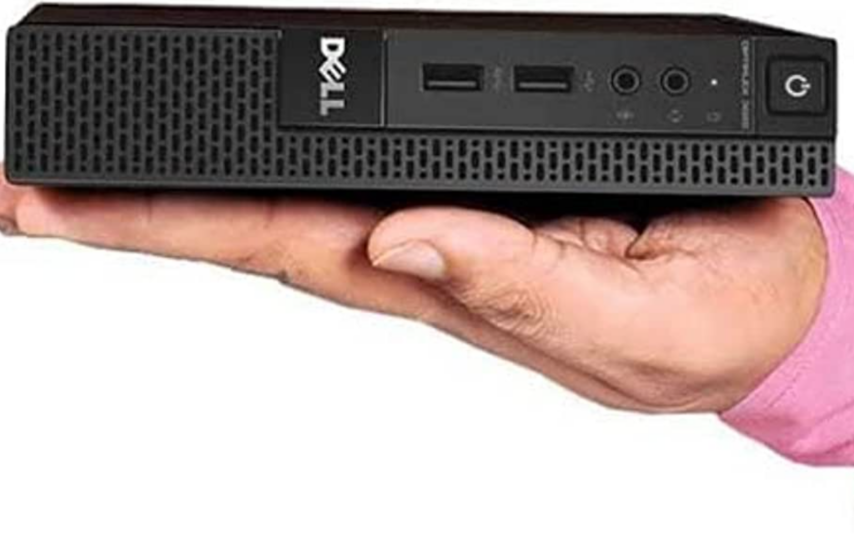In today’s fast-paced world, technology has become an integral part of our daily lives. From smartphones to laptops, we rely on these devices for various tasks.
When it comes to personal computing, mini PCs have gained popularity due to their compact size and portability. But are mini PCs good for everyday use?
What are Mini PCs?
Mini PCs, also known as small form factor (SFF) computers, are compact-sized devices that offer computing capabilities similar to traditional desktop computers. They are designed to be smaller and more portable, making them suitable for various applications, including home entertainment, office work, and casual gaming.
Advantages of Mini PCs
Portability and Space-Saving Design
Mini PCs are incredibly portable, allowing you to carry them easily from one place to another. Their compact size makes them ideal for individuals who travel frequently or have limited desk space. Whether you need to work on the go or set up a workstation in a small apartment, mini PCs offer convenience without compromising performance.
Energy Efficiency
Compared to traditional desktop computers, mini PCs consume significantly less power. This energy-efficient design not only helps reduce your carbon footprint but also translates into lower electricity bills. If you’re conscious about energy conservation and want to save money in the long run, a mini PC can be a great option.
Versatility and Connectivity Options
Despite their small size, mini PCs are packed with a range of connectivity options. They typically come with USB ports, HDMI outputs, audio jacks, and wireless connectivity capabilities. This allows you to connect peripherals, such as monitors, keyboards, mice, and speakers, just like you would with a regular desktop computer. You can also connect your mini PC to a smart TV and use it as a media center for streaming movies and TV shows.
Silent Operation
Mini PCs often feature passive cooling systems or low-noise fans, resulting in near-silent operation. Unlike traditional desktop computers that can be noisy due to multiple cooling fans, mini PCs provide a quieter computing experience. This makes them suitable for environments where silence is essential, such as home offices, libraries, or bedrooms.
Limitations of Mini PCs
Processing Power and Upgradability
Due to their compact size, mini PCs generally have less powerful hardware compared to full-sized desktop computers. While they can handle everyday computing tasks like web browsing, word processing, and multimedia playback, they may struggle with resource-intensive applications or gaming with high graphics requirements. Additionally, upgrading components in mini PCs can be challenging or even impossible, depending on the model.
Storage Capacity
Mini PCs often prioritize compactness over storage capacity. They typically come with solid-state drives (SSDs) that offer faster performance but have limited storage space compared to traditional hard disk drives (HDDs). If you have extensive storage needs for large files, such as videos, photos, or game installations, you may need to consider external storage options or cloud services.
Lack of Expandability
In most cases, mini PCs have limited expansion options due to their small form factor. They usually have fewer slots for adding additional components like graphics cards, sound cards, or extra RAM. If you anticipate the need for future upgrades or customization, a traditional desktop computer might be a more suitable choice.
FAQs (Frequently Asked Questions)
Are mini PCs good for gaming?
Mini PCs can handle casual gaming or older games with less demanding graphics requirements. However, if you’re a serious gamer or want to play the latest AAA titles at high settings, a dedicated gaming PC or gaming console would provide a better gaming experience.
Can mini PCs replace traditional desktop computers?
For most everyday computing tasks like web browsing, word processing, email, and multimedia playback, mini PCs can replace traditional desktop computers. However, if you require high-performance computing for tasks like video editing, 3D rendering, or running resource-intensive software, a full-sized desktop computer might be more suitable.
Are mini PCs suitable for office work?
Yes, mini PCs are excellent for office work. Their compact size saves desk space, and they offer sufficient computing power for tasks like document editing, spreadsheet management, and video conferencing. Additionally, they can be easily connected to external monitors, keyboards, and other peripherals, enhancing productivity.
Conclusion
Mini PCs offer a compact and portable computing solution for everyday use. Their portability, energy efficiency, and versatile connectivity options make them suitable for a wide range of applications. Ready to experience the convenience of a mini PC for everyday use? Check the wide range of mini PCs available at GEEKOM and find the perfect one for your needs.








